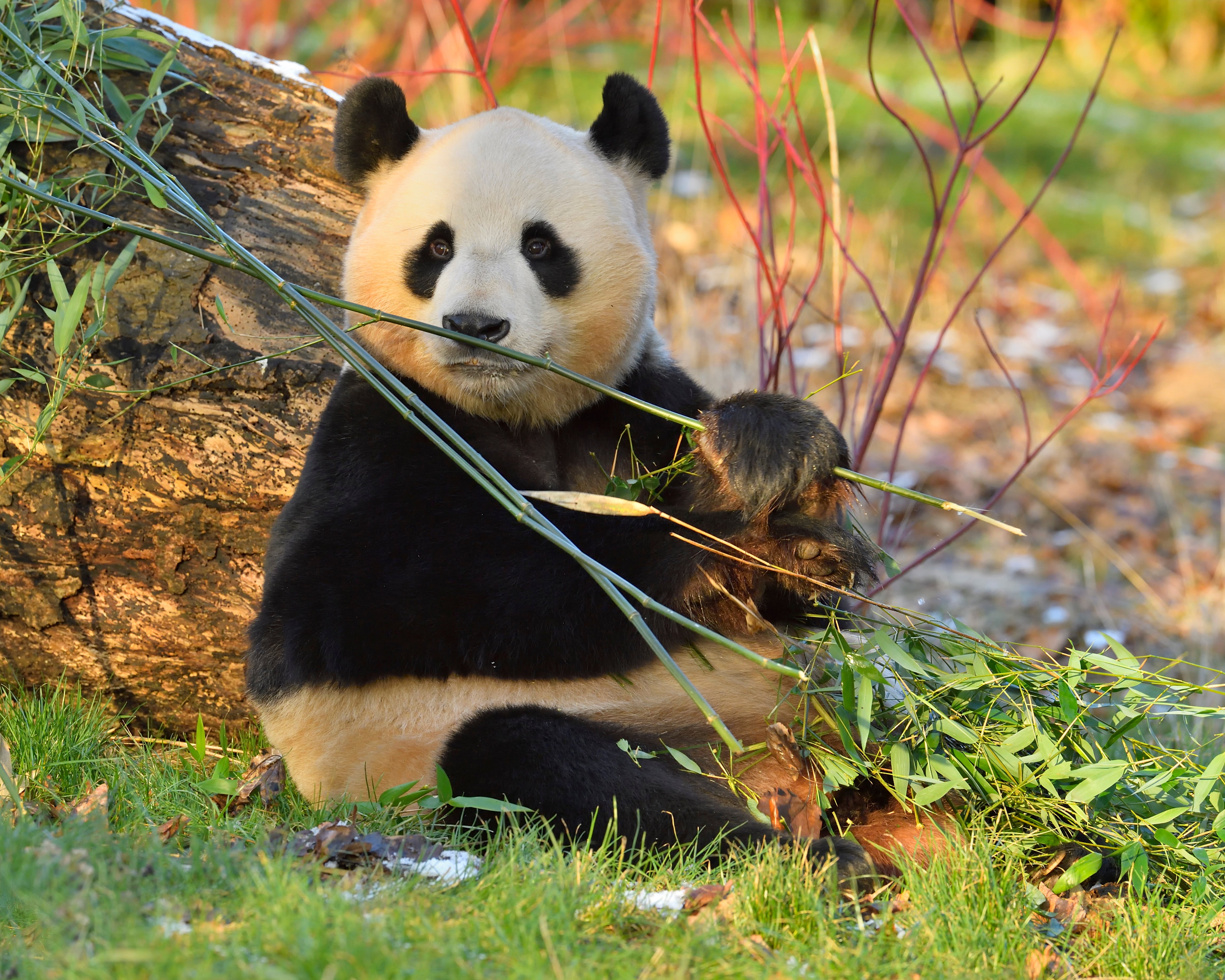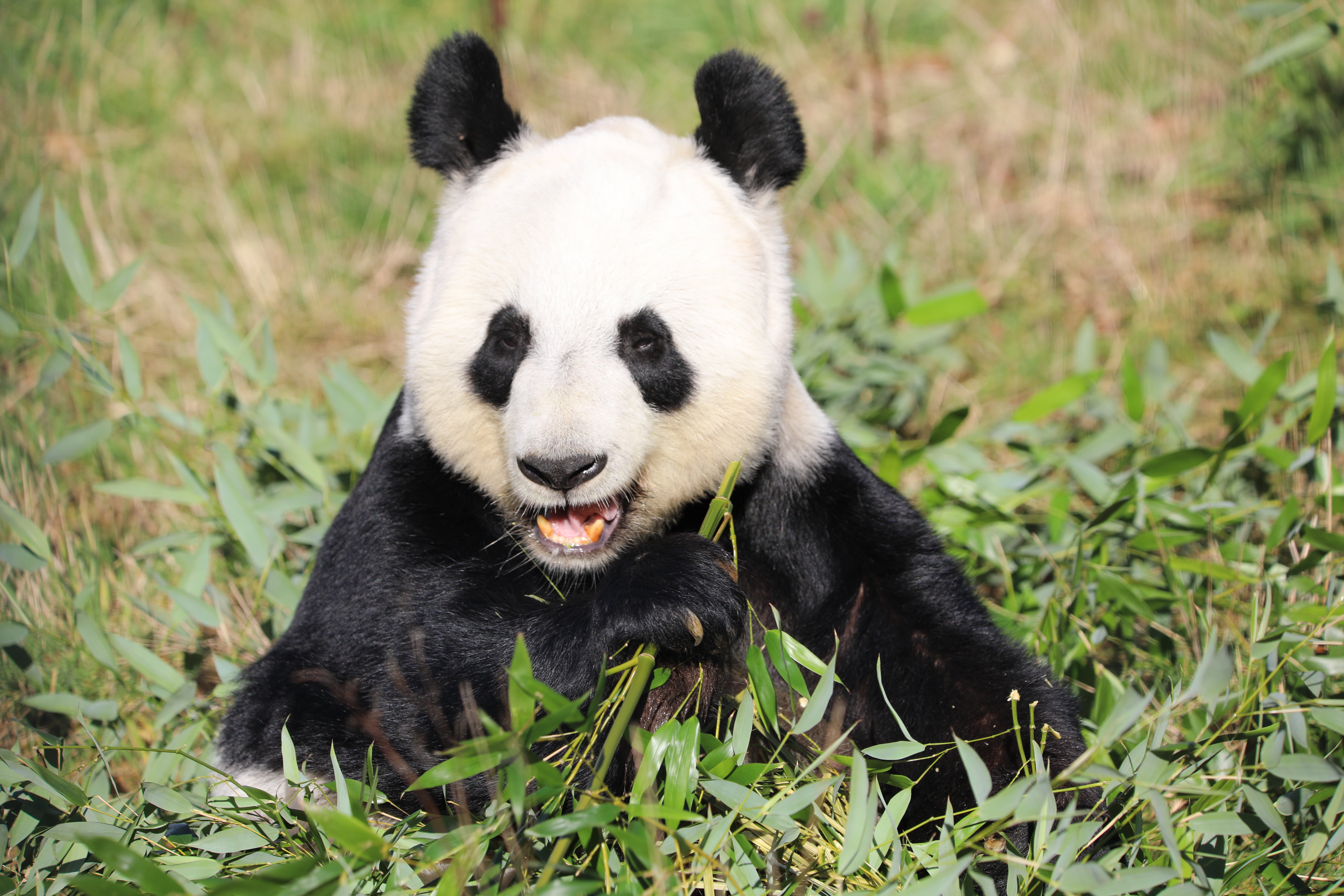Fans say goodbye to Edinburgh’s giant pandas
THE ARTICLES ON THESE PAGES ARE PRODUCED BY CHINA DAILY, WHICH TAKES SOLE RESPONSIBILITY FOR THE CONTENTS

The only giant pandas in the United Kingdom, Yang Guang and Tian Tian, returned to China on 5 December after a 12-year stay at Edinburgh Zoo. In the days before they left, crowds thronged the panda enclosure to bid them farewell.
Yang Guang, whose name means sunshine, and Tian Tian, whose name translates to sweetie, arrived at Edinburgh Zoo in December 2011 as part of a 10-year agreement between the Royal Zoological Society of Scotland and the China Wildlife Conservation Association. The agreement was later extended by two years because of the pandemic.
Since their arrival, Yang Guang and Tian Tian have garnered a great deal of public interest, and the BBC billed the panda enclosure as a “rock star” attraction that has been at the top of the must-see list of more than 600,000 visitors to the zoo each year.
Vanessa Moreland-Strange and Andrew Strange, a couple living near Edinburgh, brought their two children to the zoo recently to say goodbye to the pandas. The family said they had visited the panda enclosure 28 times since 2018 and “every time was the best time”.
“It is just a good family time,” said Strange. “You come and watch them playing. Sometimes they are quiet, sometimes mischievous and playful, sometimes a bit grumpy, like our two little children. It is good that we can come and learn while having a nice day out and also contribute towards the conservation of the environment.”
Moreland-Strange said the pandas had influenced her daughter’s ambition to work as an animal conservationist when she grew up.
“My daughter is very passionate about endangered species and feels strongly about how we have treated our world. She wants to try to fix conservation problems as a career. Pandas have helped her to grow her passion. So it just seems that the pandas fell into place with us all,” she said.
Lisa Taylor, who flew in from Bristol in south-west England to say goodbye to the pair, said it had been a privilege to have had pandas in the UK.
“They are very special animals. We are very privileged to have seen them here in the UK because they are so rare. There are many people who will never, ever get to see a panda,” she said.

To bid farewell to Yang Guang and Tian Tian, the Royal Zoological Society of Scotland has been holding a series of events since January that has proved immensely popular.
Activities priced between £30 and £500 included a one-hour guided tour and behind-the-scenes experience to help the keepers feed Yang Guang. The experience was offered exclusively to zoological society members as well as patrons and giant panda “adopters”. The tickets sold out in just 90 minutes.
The zoological society members said the sales raised more than £42,000, and the money will be used by the charity to help save wildlife from extinction.
“With more than a million species at risk of extinction and our natural world in crisis, Yang Guang and Tian Tian have had an incredible impact by inspiring millions of people to care about nature,” said David Field, the zoological society’s chief executive. “They have also made a significant contribution to our understanding of giant pandas, which will be of real benefit to efforts to protect this amazing species in China.”
Experts from China and Scotland have carried out multiple research projects, organised technical and personnel exchanges, and supported public education campaigns, such as the “Beyond the Panda” programme, which offers a wealth of resources to students in Scotland so they can explore China’s animals, environment, geography and habitat, alongside its language.
“It is encouraging that in recent years, the outlook for giant pandas in the wild has improved, which gives us real hope for the future,” Field said.

Bookmark popover
Removed from bookmarks